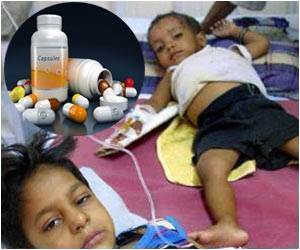
A lack of awareness about the disease and few screening facilities mean that, like Abdulla, who comes from a farming family in White Nile state bordering war-torn South Sudan, many Sudanese women are diagnosed when the cancer is advanced. She is one of a growing number to seek treatment at the KBCC, a private, not-for-profit hospital founded by Sudanese radiologist Dr Hania Fadl. Problems like those faced by Abdulla persuaded Fadl to return to her home country after nearly three decades working as a radiologist on breast cancer screening in London.
"During visits to Sudan, I noticed an increase in the number of women affected by the illness and a lack of proper opportunities for diagnosis and treatment," she said with a hint of an English accent picked up during her years abroad.
She was lucky to have both knowhow and finances. The charitable foundation run by her ex-husband, the Sudanese-British businessman Mo Ibrahim, gave the $14 million (12.3 million euros) needed to complete it.
"It was a real struggle. It took a lot of perseverance and a lot of money," the diminutive 68-year-old said, sitting in her office in the reflective blue glass tower that houses the center, the product of five years' toil.
Ignoring financial advisers' warnings to abandon the project, Fadl pressed on, buying a digital mammogram machine for screening and two anesthetic machines, and eventually opening the KBCC in October 2010.
Advertisement
The center dominates her life -- she lives in an apartment above the spotless corridors of the center, where women dressed in colorful traditional robes move anxiously from room to room, for mammograms, biopsies and surgery.
Advertisement
In a clinic decorated with pink ribbons for breast cancer awareness month, Abdulla was exhausted from her chemotherapy four months ago -- but grateful. The $50 the center charges for a digital mammogram is still too expensive for many, but 40 percent of the major surgeries they carried out were paid for.
Fadl has heard -- the health ministry does not keep full records of breast cancer statistics -- that of nearly 2,000 women diagnosed in Sudan every year, about 60 percent die due to lack of proper care. The problem is a major one not just in Sudan, but in many developing countries, where there are few resources for screening and education. Women have travelled from South Sudan, Chad and Ethiopia for treatment at the KBCC.
"Most -- two-thirds of -- deaths from breast cancer and almost nine in 10 women who die from cervical cancer live in low- and middle-income countries," said Ophira Ginsburg, a World Health Organization breast cancer specialist.
- 'Catching cases early' -
Even with her state-of-the-art equipment and her new staff, working in Sudan poses unique challenges. The country has been under a trade embargo by the United States since 1997, imposed over rights abuses and President Omar al-Bashir's support for radical militant groups.
When the digital mammogram machine, bought from a US company, broke down in April, it took 10 weeks to get the permits to allow an engineer to come with spare parts to repair it.
"We have ladies from South Sudan, from Darfur who come through hell to reach here," she said.
Unsure of when the machine would be fixed, many had to be told to go back and return later. But the center has also had successes. Samrin Farouk Habbani, a 28-year-old doctor at the center since 2013, has seen a change in the cases they receive. When she arrived, many patients were advanced, but unlike Abdulla, were inoperable. They were some of the hardest times of Habbani's career. "But we have started getting cases in the early stages and people have a better understanding of screening," she said.
Source-AFP














